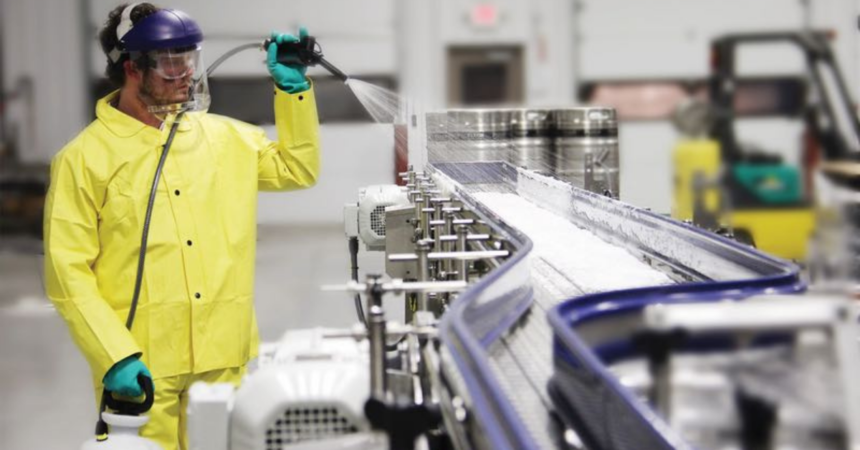Industrial hygiene is a critical aspect of maintaining a healthy and safe work environment in manufacturing and industrial facilities. It encompasses a range of activities designed to control and eliminate workplace hazards that can lead to injuries, illnesses, and adverse environmental impacts. At the core of effective industrial hygiene is the need for rigorous and thorough cleaning protocols. This is where factory cleaning services come into play, providing the expertise and resources necessary to ensure that factories meet the highest standards of cleanliness and sanitation.
Understanding Industrial Hygiene
Before delving into the specifics of factory cleaning services, it’s important to understand what industrial hygiene entails. Industrial hygiene focuses on identifying potential health risks in the workplace, including chemical, physical, biological, and ergonomic hazards. Once identified, measures must be taken to monitor, control, and eliminate these hazards to safeguard the wellbeing of workers and the surrounding community.
The Significance of a Clean Factory Environment
A clean factory environment is not only a regulatory requirement but also a foundational element for operational efficiency and workforce health. Dust, debris, chemical residues, and other contaminants can compromise machinery performance, lead to product contamination, and pose significant health risks to employees. Neglecting this aspect of industrial hygiene can result in costly downtime, legal liabilities, and harm to a company’s reputation.
Role of Factory Cleaning Services
The role of factory cleaning services is multifaceted. These services deploy specialized equipment and trained personnel to perform a variety of tasks, such as high-pressure cleaning, hazardous waste removal, and decontamination of surfaces. Their methods must comply with stringent industry standards and protocols, ensuring that the cleaning processes are thorough, environmentally responsible, and safe for all employees.
Customised Cleaning Solutions
Every industrial facility is unique, with its specific processes, equipment, and challenges. Factory cleaning services need to offer customised solutions that address the distinct needs of each client. They need to analyse the facility layout, materials handled, and the nature of the byproducts produced to create an effective and efficient cleaning regimen.
Advanced Cleaning Techniques and Equipment
Modern industrial environments require advanced cleaning techniques and state-of-the-art equipment to handle complex tasks effectively. Factory cleaning service providers invest in the latest technology, including automated cleaning systems, environmentally friendly cleaning agents, and personal protective equipment (PPE) to ensure the best results and highest safety standards.
Compliance with Health and Safety Standards
Compliance is a non-negotiable aspect of industrial cleaning. Factory cleaning service providers must be well-versed in the relevant health and safety regulations, including local and national standards. This expertise allows them to not only perform their duties effectively but also to advise and assist factory owners in maintaining a compliant and safe work environment.
Regular Maintenance and Emergency Responses
Consistency is key in industrial hygiene. Factory cleaning services offer regular maintenance schedules to ensure that facilities remain clean and safe over time. In the event of an accidental spill or unexpected contamination, they are also equipped to provide emergency response services, helping to mitigate risks and resume normal operations as quickly as possible.
Enhancing Productivity and Employee Morale
A clean work environment directly impacts productivity and employee morale. Workers feel safer and are better able to focus on their tasks in a well-maintained facility. Moreover, equipment that is kept clean and in good working condition is less likely to malfunction, which reduces interruptions in the production process.
Collaborative Approach to Industrial Cleaning
A successful factory cleaning regimen requires collaboration between factory owners and cleaning service providers. There needs to be a shared understanding of objectives, challenges, and expectations. Effective communication ensures that all relevant hazards are addressed and that cleaning protocols align with the operational workflows of the facility.
Employee Training and Involvement
While professional factory cleaning services handle the more complex and dangerous cleaning tasks, employee training and involvement in everyday cleanliness can significantly complement these efforts. Ensuring that workers are aware of the best practices in maintaining a tidy workspace can help prevent contamination and hazards in between professional cleanings.
Investing in the Future of the Facility
Engaging with reputed factory cleaning services is an investment in the longevity and sustainability of a manufacturing facility. It is a proactive measure that preserves equipment, ensures the health of employees, and maintains production quality. In the long run, the costs saved from avoiding potential accidents, health issues, and equipment failures more than justify the investment in professional cleaning services.
Conclusion
Mastering industrial hygiene is essential to the success and viability of any manufacturing or industrial operation. Factory cleaning services play a pivotal role in achieving the necessary standards of cleanliness and safety. Through their cusfod services and adherence to compliance, they help factory owners protect their workforce, their productivity, and their reputation. As industries continue to evolve and regulatory demands become even more stringent, the partnership between industrial facilities and professional cleaners will grow increasingly important. Factories committed to excellence in hygiene and safety will find that leveraging the expertise of factory cleaning services is an indispensable strategy for success.








